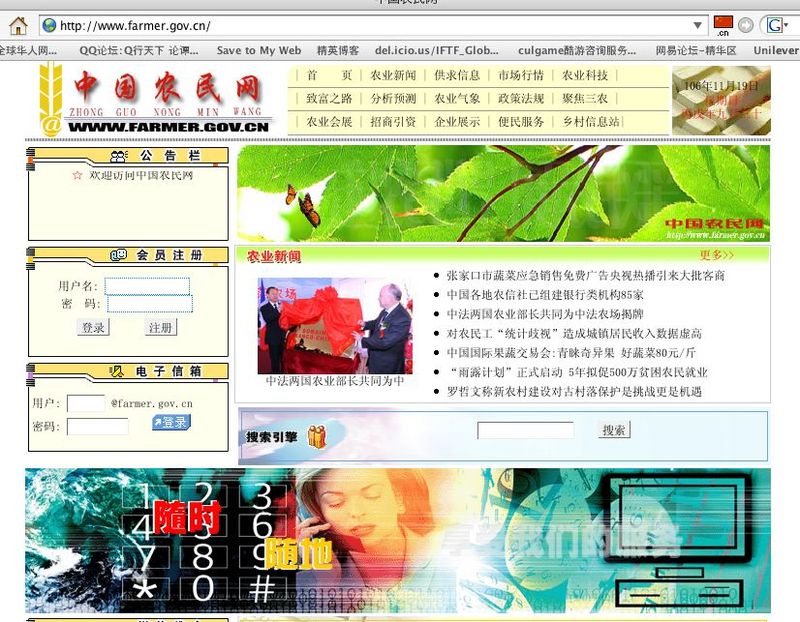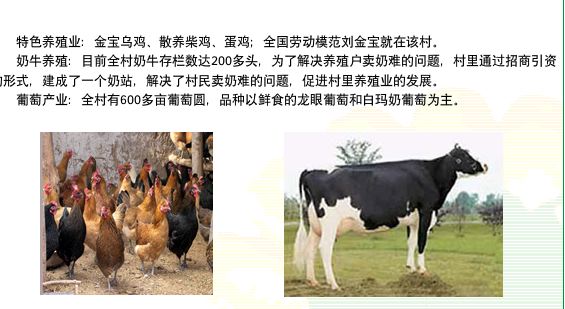peasant webs
Just finished the eye-opening Will the Boat Sink the Water? The Life of Chinese Peasants, the English translation of The Chinese Peasant Investigation 中国农民调查, originally published in 2004 and banned two months after publication. It’s a fast, good read, and sounds awfully familiar if you’ve read any Chinese history–case after case of Chinese peasants trying desperately to make end-runs around violent, corrupt local officials. So I decided to check out the online peasant presence, beginning at the most obvious place: a Baidu search for “peasant net” 农民网. It yields 38,300 sites (next stop Google.com, which yields 162,000). I’ll review some of the top-ranked sites over the next couple of weeks.
ChinesePeasantNet中国农民网 looks like it is maintained by a government body in Hebei province, perhaps in Zhangjiakou municipality (it’s a bit hard to tell: the “About Us” at the bottom of the page is not a hyperlink). At first glance one is struck by the relative “clean-ness” of the site. It’s uncluttered by Chinese standards, with fewer menu choices and more white space. As fits a .gov site, the focus is on communications from the topdown–including the texts of laws and regulations. Will the Boat Sink the Water points out how important it is for rural people to have access to these texts, as they can use them to force official recognition of illegal activities, once they know exactly which activities ARE illegal. Front and center on the page is “Agricultural News.” Overall impression: this is a one-way communication site. BBS or photo forums are absent.
At the bottom of the page is something rather intriguing–links to township and village level websites. Click through to Maoshan Village, for instance, where you’ll begin with an official statement:
The Maoshan Village Information Website was established in November, 2005. It serves the peasants of this village. Its primary goal is to promote rural technologies, market rural products, and provide information, providing complete information in the service of agricultural industrialization.
Some of the things the site does include “protecting the image” of the village and posting commercial information about products on over 3000 “domestic and international” websites–but no more than 2 times a month.
You can find a simple description of the village–520 households, 1860 people, 309 hectares arable land, growing apples, pears, apricots, grapes, peaches, corn, and more. Finally, there’s a link to “special products” of the village, which are chickens and cows.
The middle of the homepage offers sections on Supply and Demand, Agricultural Technologies, Market Conditions, Agriculture Forecast, and Road to Wealth. Each section has links to short news summaries, again, with no discussion forums.


Blocked it is, which doesn’t mean bookstore employees agree. Stopped by the largest bookstore complex here in Guangzhou with a friend last week who wanted to thought that might make a good birthday present for a friend. We asked the staff in a few shops and one did have a copy on the shelves, although it was a little thumbed. Any bets it got passed around the staff, who couldn’t find copies elsewhere themselves?
Banned, I meant. Of the Chinese-language version.